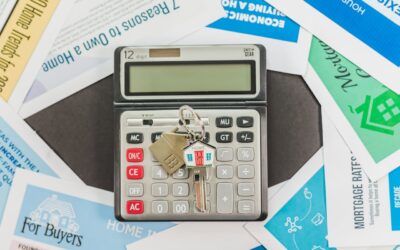Yes, you can get a bridging loan even if you have bad credit.
When it comes to bridging loans, lenders will assess a number of factors before giving you a loan, including your collateral and most importantly, your exit strategy.
Given that most bridging loans are unregulated, even with a less-than-perfect credit rating, you may still qualify for this type of short-term loan. Let’s explore why…
What Is A Bridging Loan?
A bridging loan is a short-term loan secured against a property. It was designed to “bridge” the gap between two financial events, such as buying a new property before selling another one.
Bridging loans are also popular for funding property renovations, buying properties at auctions or handling other transactions where quick approvals are needed.
Unlike traditional loans, which involve long approval processes and heavily depend on credit scores, bridging loans are mainly concerned with one key aspect: the exit strategy.
This is the plan that showcases how you will repay the loan at the end of the term. If you have a reliable and well thought out exit strategy, bridging lenders may be willing to overlook certain credit issues and approve your loan.
Why Can You Get A Bridging Loan With Bad Credit?
Traditional loans, like personal loans and mortgages, tend to focus heavily on your credit score and income stability. This is because they are looking at regular repayments over long periods of time.
For those with bad credit, getting these types of loans can be difficult. Bridging loans on the other hand, operate differently. Here are a few reasons why:
Secured Lending
Bridging loans are secured against an asset, normally another property, which a lender has access to if the loan isn’t repaid. This reduces the lender’s risk since they have a set way to recoup their money by selling the asset if the borrower defaults on payments.
Exit Strategy Focus
The main thing bridging lenders want to know is the borrower’s exit strategy. As long as you can show a solid plan to repay the loan, many lenders are likely to overlook a poor credit history. Ways of exiting include:
- Selling a property
- Refinancing
- Liquidating other assets
Flexibility In Lending Criteria
Bridging loans are not regulated in the same way as other loans. Lenders have more flexibility to look at the unique application of each applicant and decide based on that, rather than something more structured like credit history.
See our guide around bridging loan eligibility here.
How To Secure A Bridging Loan With Bad Credit
Here’s how to strengthen your bridging loan application with bad credit:
Tighten Up Your Exit Strategy
A clear exit strategy is very important. Whether you plan to repay the loan through selling a property, refinancing, or another way, outlining why it’s achievable is one of the best ways you can secure a bridging loan, and fast.
Ensuring Your Property Assets Are In Good Condition
The asset that you use to secure the loan, usually a property, should be in a condition, sellable and mortgageable.
The better the condition of the property, the more confidence the lender will have in its value.
Deposit Size
If you have a bad credit history, having a larger deposit — around 25% or more — can help your chances of approval.
A bigger deposit reduces the lender’s risk and can make your application more appealing.
Experience In Property Development
If you are applying for a bridging loan to fund a property development or renovation, showing that you have experience in this can help your case. This can help convince the lender that you are likely to execute your plans successfully.

How To Apply For A Bridging Loan With Bad Credit
Here are the steps you should follow:
Prepare Your Documents
Pull together all necessary documents, including:
- Proof of ownership of the property to be used as collateral
- Details of your exit strategy
- Relevant financial statements
Assess Your Property’s Value
Make sure you have an up-to-date valuation of the property you plan to use as security, however the Lender will typically require a new valuation report to be instructed.
This will help both you and the lender understand the value of the asset and how you plan to cover the loan amount.
Make Your Exit Strategy Foolproof
Be prepared to present a clear and convincing exit strategy.
Whether it’s a property sale, refinancing, or another plan, make sure you show exactly why you think it’s viable. Back this up with a document like an agreement in principle or data around property sales in a similar area.
Speak To The Lender Before Applying
Working with a bridging loan broker or lender from the start and being open about the process can help to increase your chances of success. They will be able to present any hesitations up front and guide you through the process, making a successful application more likely.
If you would like to explore a bridging loan today, visit Blue Square Capital to find out more.
Finding The Right Lender
Not all lenders are willing to work with borrowers who have bad credit.
Look for companies that are most likely to approve your application and secure the best possible terms.
The key is to demonstrate that, despite past credit issues, you have a clear plan to repay the loan and the ability to execute that plan within the agreed timescale.
Bridging Loans With Bad Credit
While having bad credit can complicate the process of obtaining a general loan, it does not necessarily mean you’ll have trouble getting a bridging loan.
By focusing on a strong exit strategy, making sure your property asset is in good condition and doing your research, you can improve your chances of approval.
If you would like to explore a bridging loan today, visit Blue Square Capital to find out more.


